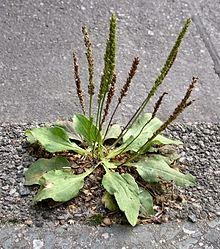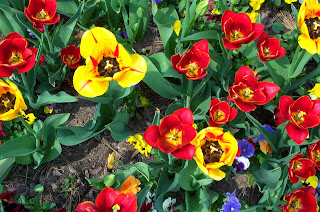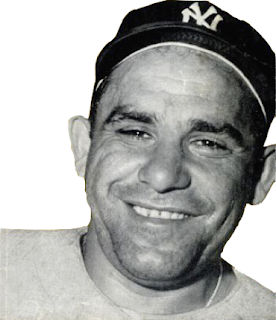In my garden, I have encountered a variety of
weeds. Many of them are very hardy. Some have a single root. If that weed is pulled out by the root,
wonderful! If not, it will come back. Others have complex root systems that
make them next to impossible to pull out. They must be dug out. In those cases,
I remember that the Lord said He was going to leave the tares and the
wheat to grow together, and do the weeding at the end of time. Sometimes I make
a similar decision. I will deal with those weeds again and again in order to
save the good plants that are growing close to them.
The task of weeding reminds me of sin. Maybe you,
like me, have discovered that weeding, like ridding your life of sin, involves
the following.
Weeding is backbreaking work. If I don’t stay alert
and “prayed up,” sin keeps coming back. If I don’t keep up with the weeding,
the weeds overtake the garden. Vigilance is the key. Bill Gaither says there is a plaque on the wall of his home in Alexandria, Indiana that summed up
his parents’ attitude about
faith, “Pray for rain, but keep hoeing.”
It helps if the weeds can be pulled up by the
roots. If possible, it is best to stop sin at its source. For instance, my
nature is to panic and be fearful of unknown situations. That is the opposite
of faith. When fear raises its ugly head in my life, I have to go back to the
basics and trust God.
Sometimes I need help. The task of weeding is a bit
overwhelming sometimes, especially since my husband and I travel much of the
year. Occasionally someone will sit with me and help
me pull out weeds. Likewise, an accountability partner can often notice an area
that is displeasing to God that I have overlooked.
Weeding is easier if the soil is soft or wet. If
you ever tried to pull weeds in hard, dry soil, you know how hard it can be.
Likewise, it is easier to dispose of sin when it is fresh and recognizable as
sin. The longer sin is left to harden in our lives, the harder it is to remove.
As I work in my flower beds, I often reflect on the fact that Jesus gave many illustrations using seeds, trees, fruit, plants, sowing, pruning and reaping. As a result of the fall, the ground was cursed and work became an effort instead of a joy. There remains, however, the beauty of God’s creation all around us. If we are privileged enough to have the stewardship of a plot of earth in which we can sow and reap, then we partner with God in His garden enterprise.
Weeding, both in my garden and in my life, is well
worth it. As I observe the flowers in my garden, I am reminded that a garden is
not just one flower. It is many flowers. You and I are part of a big garden
that God has planted. Flowers need attention. But don’t we love the attention
our Heavenly Gardener showers on us? We are linked to His Living Vine. We need
each other. Together we can “bloom where we are planted” so that others can see
Jesus in us.
Oh, the joys of those who . . . delight in doing
everything the Lord wants. . . . They are like trees planted along the
riverbank, bearing fruit each season without fail. Their leaves never wither,
and in all they do, they prosper (Psalm 1:2-3 NLT).




.jpg)